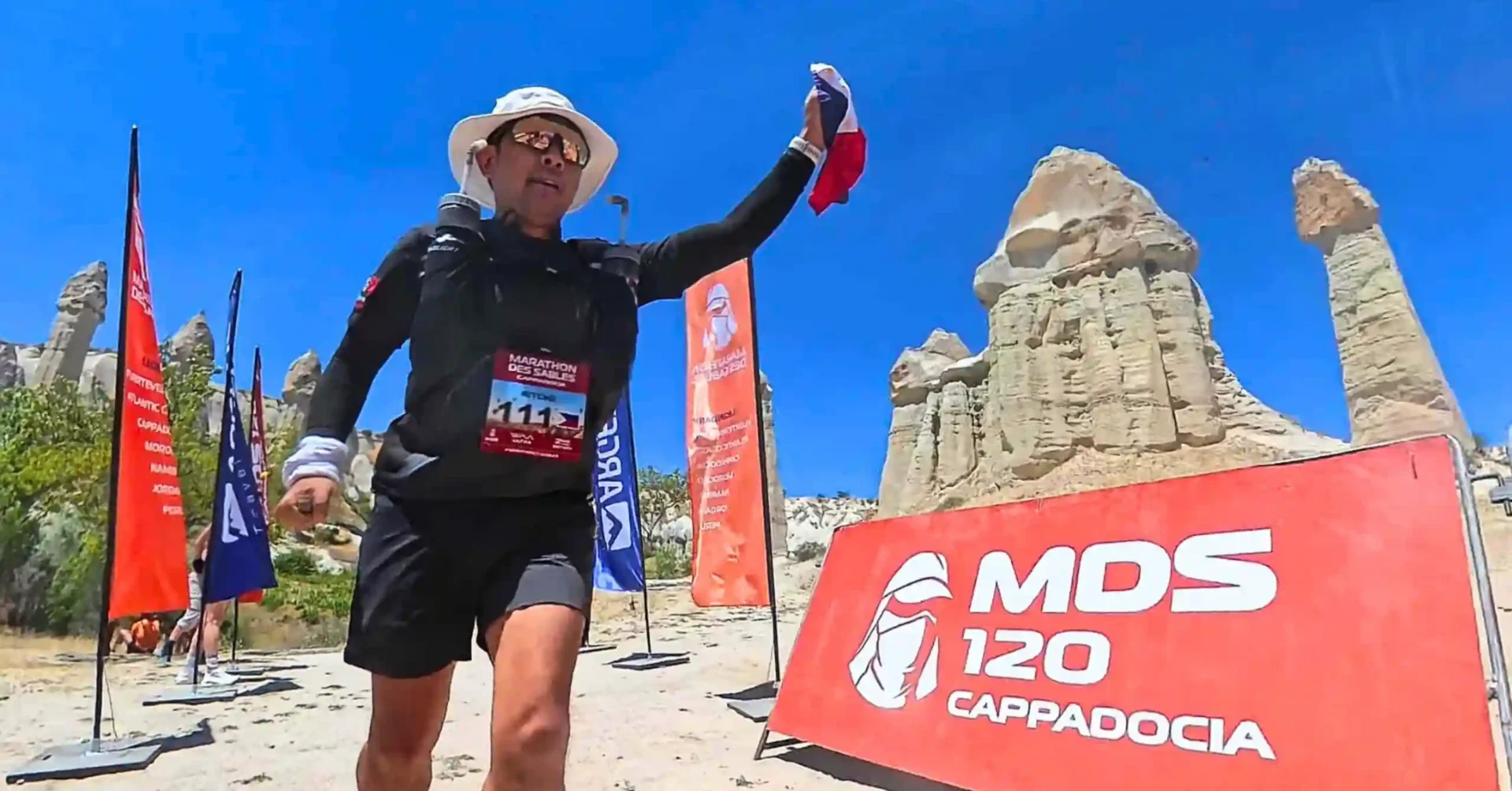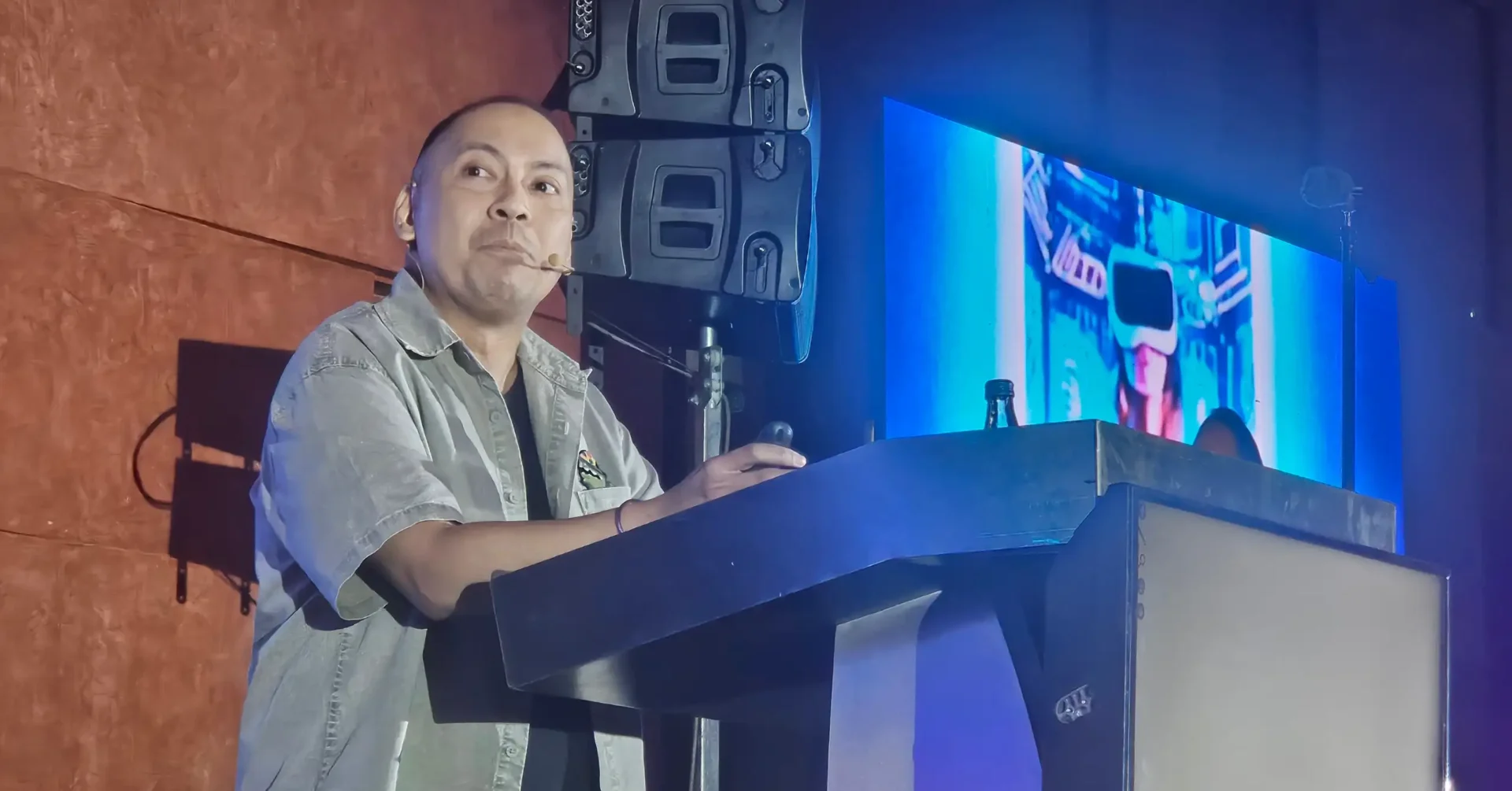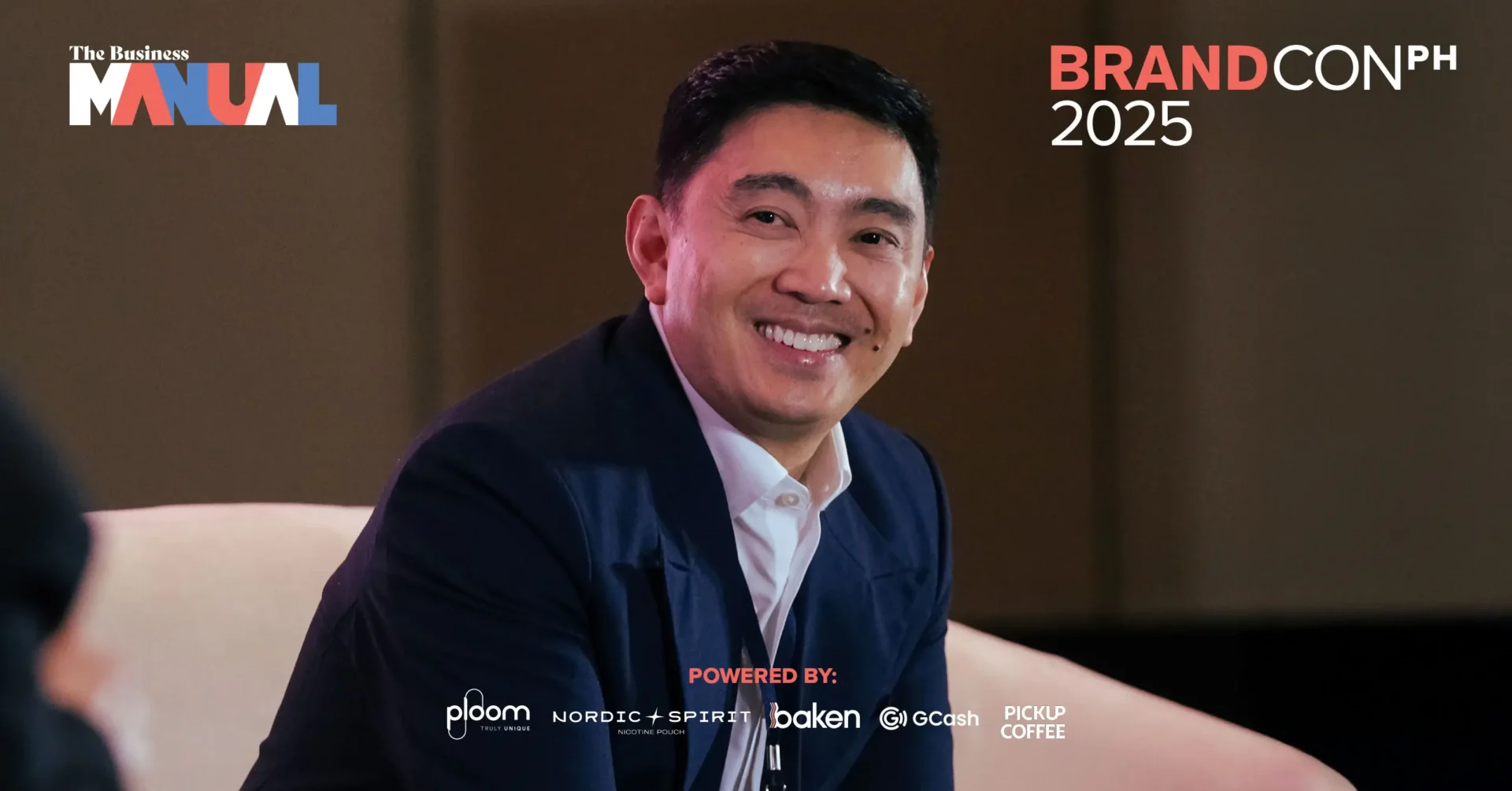Empowered for Change: The Rise of Women Entrepreneurs Driving Meaningful Impact
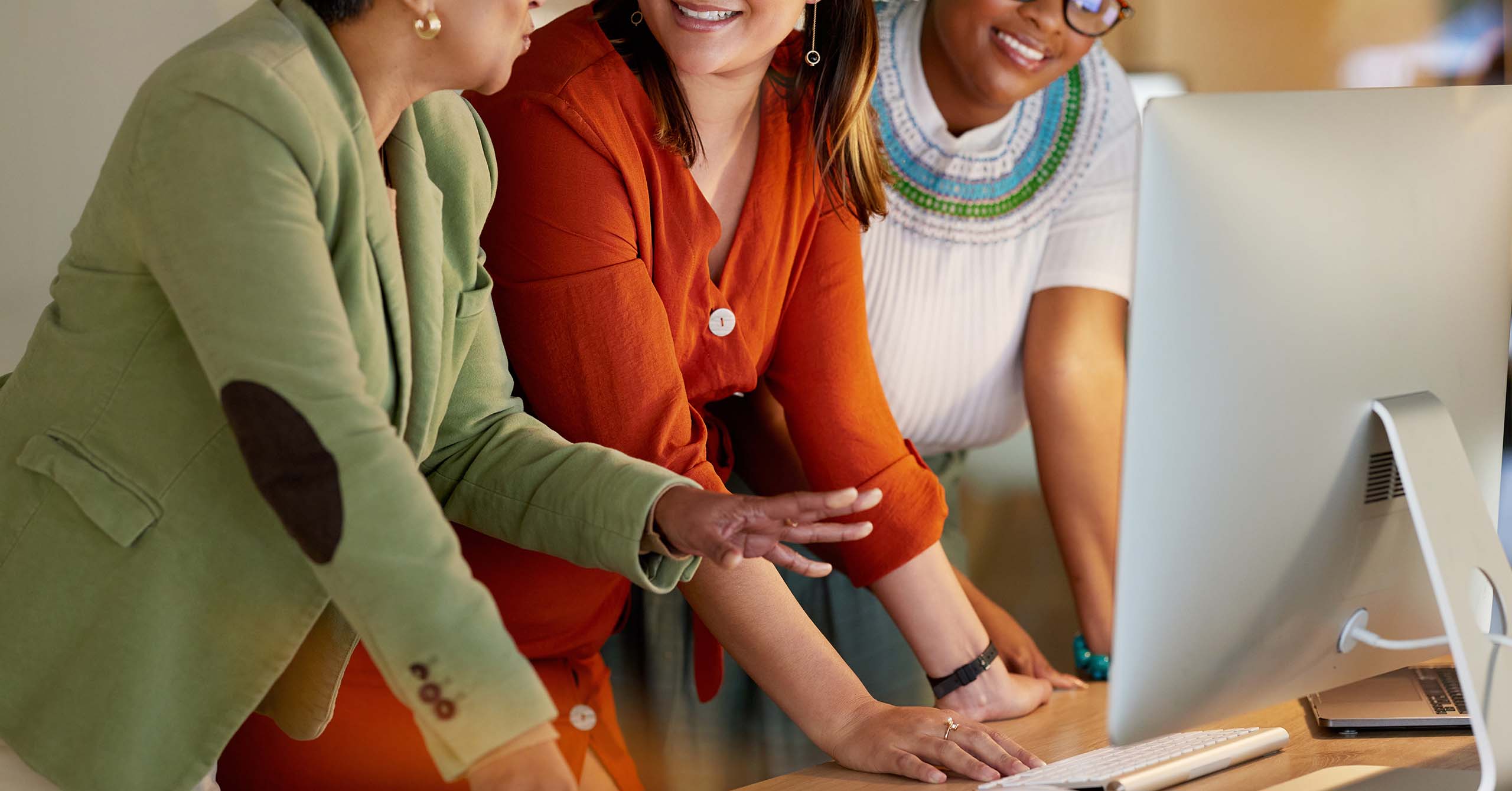
The Business Manual highlights three inspiring women entrepreneurs who have established their own companies and are shaping their own definition of success.
According to a report by the Philippine News Agency, one in every four micro and small enterprises was owned by a woman before the pandemic—a figure that has only grown in recent years. Despite ongoing challenges such as societal norms, gender bias, and limited access to funding, more women are stepping into entrepreneurship and making an increasingly significant impact on the economy.
This Women’s Month, The Business Manual celebrates three inspiring women founders who have overcome challenges, forged their own paths, and risen to the top of their fields.
Alice Eduardo, Sta. Elena Development Corporation
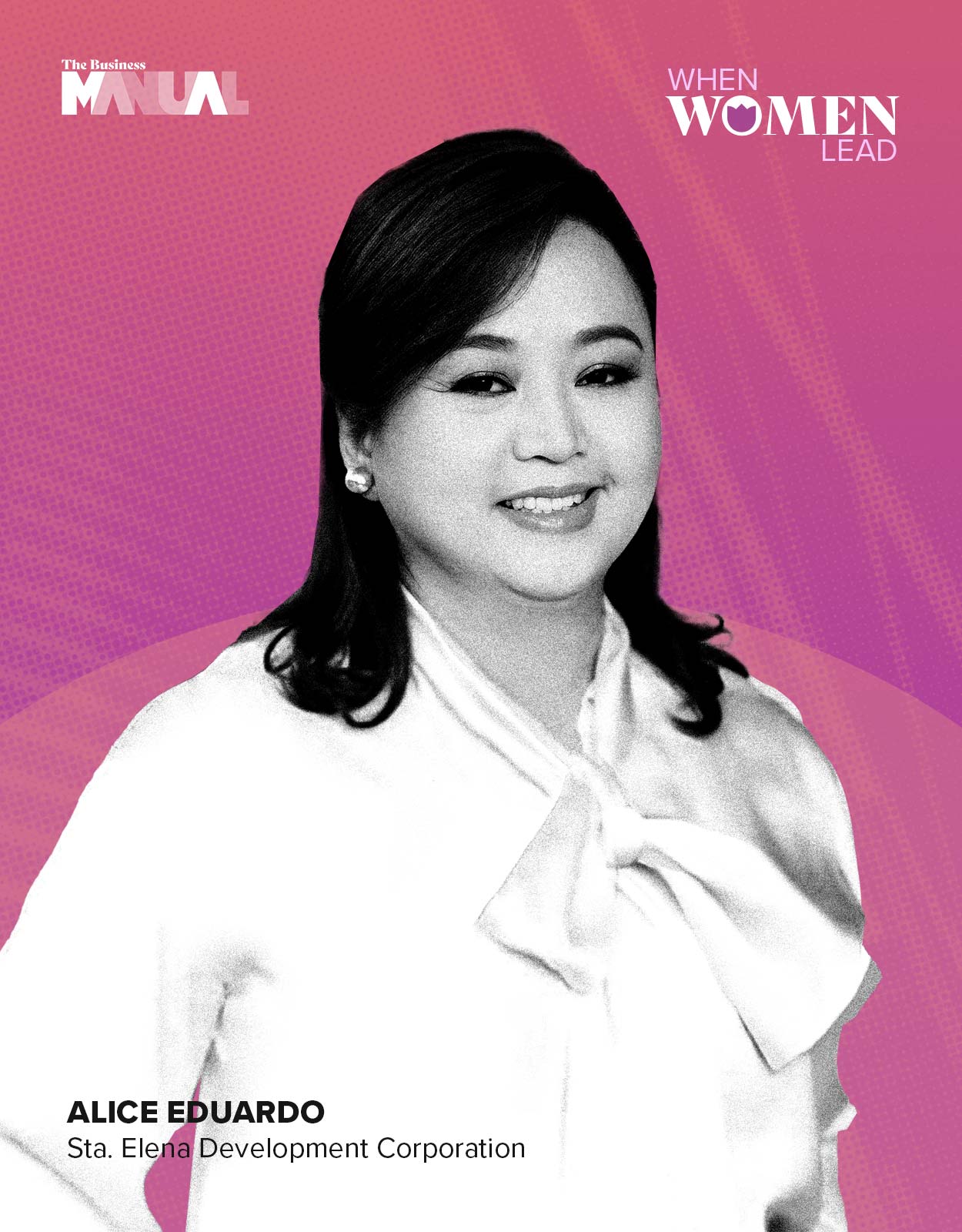
Alice Eduardo showed entrepreneurial spirit at a young age. Growing up as the eldest of four in a well-off family in Nueva Ecija, she was exposed to the complexities of running a business. By the time she was 12, she was already lending a hand in the family’s diverse ventures—from rice milling and trading to garment exports and even managing a local bowling center. It was clear, even then, that she was destined to lead.
Beyond helping out in the family’s office and stores during school breaks, she would come up with her own small business ideas, like selling ice cream and cigarettes at their bowling center, to earn her own money and gain firsthand experience.
In college, Alice set her sights on engineering, a field she was deeply passionate about. However, her parents, holding traditional views, discouraged her, insisting it was a profession suited only for men. Yielding to their wishes, she took up Business Management and began working in the family business. Yet, her fascination with construction and engineering never left her; it quietly fueled her ambitions, waiting for the right moment to take shape.
One day, Concrete Aggregates—the construction company they were supplying with rice subsidies for its employees—asked if she would be interested in providing steel splices for a major project. Although she had no prior experience in the industry, Eduardo seized the opportunity and delivered. The experience reignited her passion for engineering and construction, eventually leading to the founding of Sta. Elena Construction and Development Corporation in the mid-1990s.
But success didn’t come without its share of challenges. In the late 90s, Eduardo was hit hard by the Asian financial crisis. With most of her loans in US dollars, the sharp depreciation of the peso plunged the company into debt. Under pressure, she was forced to sell equipment at a loss to repay creditors and came close to shutting down the business entirely.
Eduardo’s calm and gentle exterior belied her tough nature. During the 1997 Asian financial crisis, instead of giving up and closing her business, she negotiated a loan restructuring with US Exim Bank. She eventually paid off the loan and earned the industry’s trust and confidence in the process.
When the crisis passed, Sta. Elena Development Corporation emerged as the only company equipped to handle the foundation work for one of the world’s largest malls—SM Mall of Asia. This milestone opened doors to building more SM malls, as well as other landmark projects such as Solaire Resort and Casino and City of Dreams Manila.
Nina Ellaine Dizon, Colourette Cosmetics
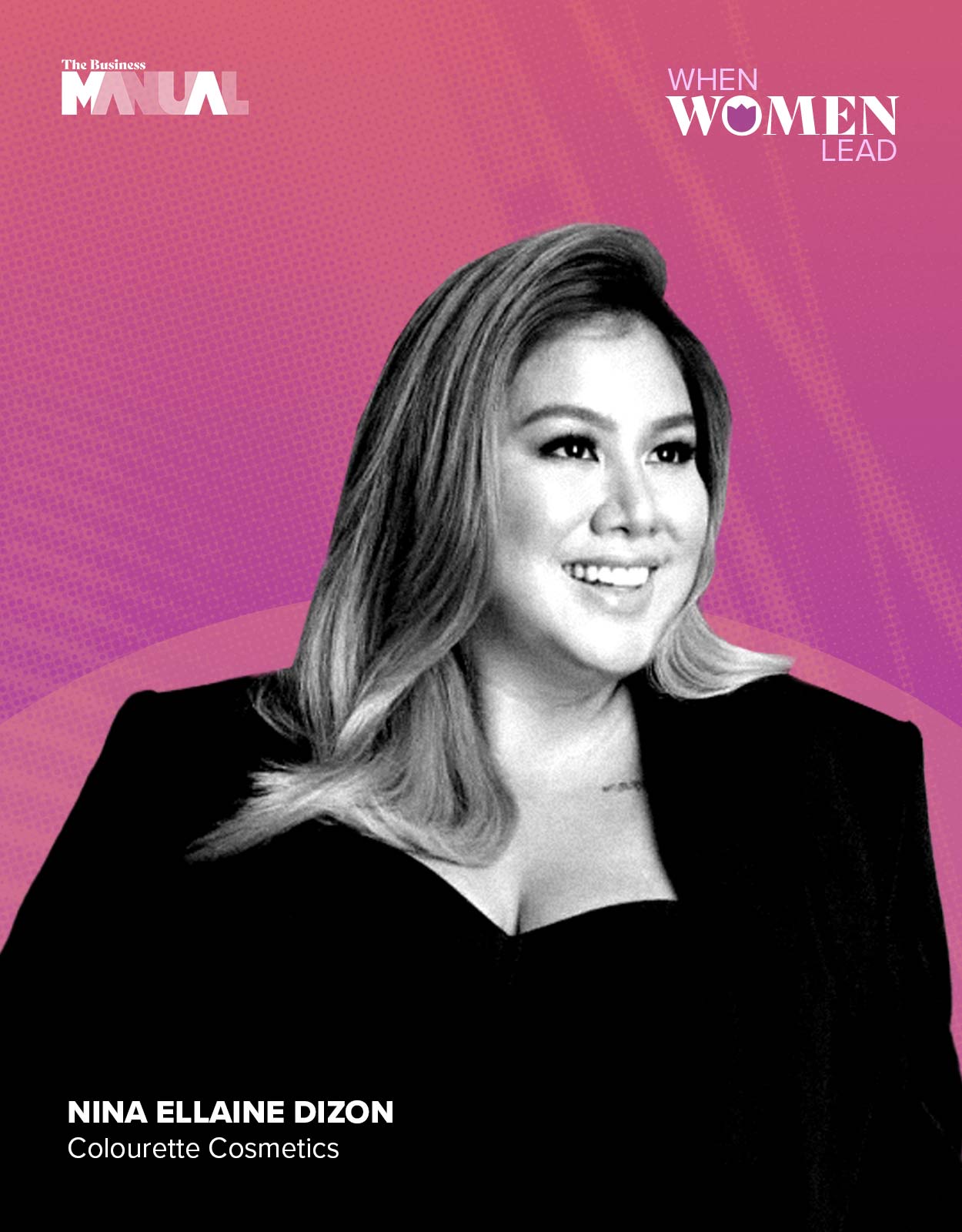
Dizon’s entrepreneurial journey began out of necessity. While she was in college, her mother pulled her aside and admitted that her father could no longer afford to pay for her education. The news was a heavy blow, but Dizon was determined to stay in school and earn her degree. She started looking for ways to support herself and soon began buying and selling various products on campus, ranging from clothes to accessories. It wasn’t long before she discovered a growing demand for slimming supplements. Sensing an opportunity, she focused her efforts on selling diet pills, which quickly became her best-selling product and marked the beginning of her first successful venture.
As part of her marketing strategy, Dizon began including skin-whitening soap as complimentary items with her diet pill purchases. Unexpectedly, the soap generated more interest than the pills. Recognizing the shift in consumer demand, she made a strategic pivot, developing and launching her own brand of whitening soap under the name Fairness and Flawless in 2013, at just 20 years old. Doing so marked a turning point in her entrepreneurial journey and laid the foundation for what would become a growing beauty enterprise.
With her business gaining traction, Dizon no longer had to worry about paying for school and was even able to afford buying her own car. However, balancing the demands of both academics and a rapidly growing enterprise soon became overwhelming. Faced with mounting pressure, she made the difficult decision to leave school and focus entirely on her business.
Driven by her restless ambition, Dizon set her sights on expanding into cosmetics, starting with lipsticks. The idea soon evolved into a multi-use color tint that could be applied to the cheeks, lips, and eyes. The product resonated strongly with consumers and quickly became a hit, laying the groundwork for the launch of Colourette in 2015.
As Colourette experienced rapid growth and continued to expand its product line, Dizon made the strategic decision to close Fairness and Flawless and devote her full attention to her thriving cosmetics brand.
Dizon believes that her willingness to engage authentically with her customers played a pivotal role in her brand’s success. It became a platform not only for selling products, but also for advocating diversity and inclusivity—shaping Colourette into a brand with both purpose and impact.
As she grew with her brand, DIzon’s values also evolved. Once a seller of diet pills and skin-whitening products, Dizon has since undergone a powerful shift in both mindset and mission. Embracing body positivity, she launched Every Body, a swimwear line designed to celebrate all body types, with sizes that go beyond traditional standards. At the same time, Colourette has built its identity around inclusivity by offering products thoughtfully formulated for the Filipina, especially those with morena skin tones. It’s a bold transformation that reflects her commitment to empowering women through representation and self-acceptance.
This commitment to women’s empowerment deepened Dizon’s connection with her loyal customer base, who not only valued her products but also the principles they represented.
Today, Dizon is widely recognized as an advocate of social justice, women’s rights, and consumer transparency—championing the belief that brands should stand for more than just profit, but also purpose and principle.
In 2022, Colourette scored another victory when it received seed funding from Foxmont Capital Partners. This was followed by another successful round in 2024, bringing its total funding to $2 million.
Dizon was also able to fulfill her dream of finishing school in 2023, when she earned her degree in Business Management from Lyceum of the Philippines University.
Zarah Juan
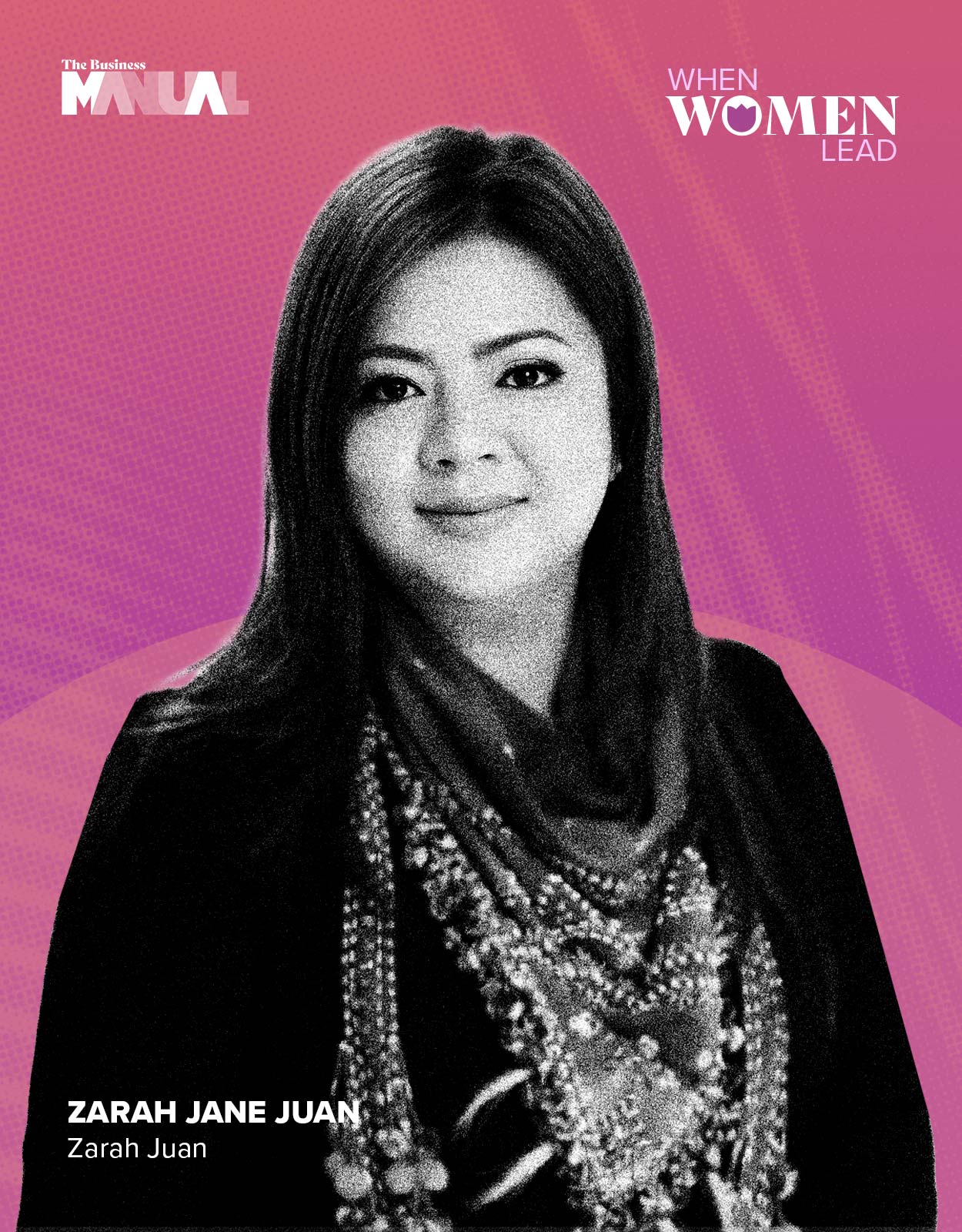
For many years, Zarah Juan lived her dream life as a flight attendant—traveling the world, earning in dollars, and enjoying a host of perks. But as she began to prioritize family life, she felt the need to settle down and chart a new path.
Driven by her passion for sustainability, she launched her first line of eco bags in 2007. However, fierce competition from low-cost manufacturers in China challenged her to rethink her approach. To make her products more competitive, she established her own manufacturing facility, allowing her to reduce costs, increase production, and improve quality. What began as a simple eco bag venture soon evolved into a broader product line that included school bags, sports bags, and corporate giveaways
However, Juan soon grew disillusioned with the direction her business had taken. Her eco-friendly venture had turned into a mass-production operation contributing to environmental waste. In an interview on the SoChal podcast, she shared how this realization increasingly weighed on her, prompting a deeper reflection on her purpose and impact.
While grappling with the direction of her business, Juan was also actively mentoring communities across the Philippines through Go Negosyo. To support and encourage her mentees, she would commission weavers and artisans to create products for her personal use. Over time, however, these purchases began to pile up. Her husband eventually suggested that she start selling the items not only to declutter, but also to help these communities reach a wider market. This moment sparked a turning point for Juan. She realized she could pivot her business away from mass-produced bags and instead focus on showcasing beautifully crafted, one-of-a-kind pieces that celebrated Filipino artistry.
As a result, Zarah Juan now markets stylish and culturally significant products that showcase the skills and talents of weavers and artisans from all over the Philippines.
Business Rooted in Purpose
These three founders—Alice Eduardo, Nina Ellaine Dizon, and Zarah Juan—each followed different paths, yet share a common thread: the courage to forge ahead despite obstacles, the clarity to pivot when necessary, and the conviction to build businesses that reflect not just ambition, but purpose.
In a country where women entrepreneurs continue to face systemic barriers, their stories serve as powerful reminders that resilience, authenticity, and vision can drive both personal success and broader social change. From laying the foundations of national infrastructure to championing inclusivity in beauty and elevating Filipino craftsmanship on the global stage, these women prove that business can be both a livelihood and a platform for empowerment.
